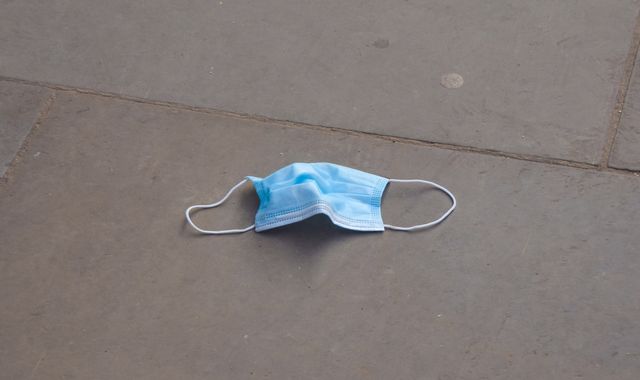Frenetic efforts to save Theresa May and her Brexit plan
Written by News on 17/11/2018
As Theresa May returned to her Maidenhead constituency on Friday night, she left behind a Downing Street operation that had kicked into overdrive.


The dual focus: to save the draft Brexit agreement with Brussels and the prime minister’s political career.
Her Brexiteer critics claim the 48 letters from Tory MPs required to trigger a confidence vote in her leadership has already been passed.
So far Sir Graham Brady, chair of the backbench 1922 committee who is responsible for declaring that moment, has made no public comment.
It is unclear whether Number 10’s frenetic efforts this weekend are intended to prevent the number of letters getting to 48, or to ensure the prime minister can get the backing of the 150 Tory MPs she would need to win a confidence vote – either way, the fight is on.
Government whips were ordered to stay in Westminster to exert coordinated pressure on MPs against submitting letters of no confidence.
Theresa May herself held a conference call with hundreds of constituency party chairs to persuade them to roll-in behind her.
As well as using all the levers of the party machinery available to affect the political arithmetic, there also appears to be an attempt to win over public sympathy.
In an interview with the Daily Mail, the prime minister recounts the support and loyalty of her husband Philip, who she says feels the pain of the personal abuse she receives more than she does.
She describes him pouring her a whisky after the five-hour long cabinet meeting on Wednesday, and being so enraged by the interviews with rebels being re-played on the news that he switched off the television.
But there remain major questions over whether any of this activity will be enough.
According to accounts of the conference call with constituency chairs seen by the New Statesman magazine, rather than being reassured, a significant number of the local party bosses raised similar concerns about the Brexit withdrawal agreement to those set out by MPs – the implications for fishing rights, farming, the role of the European Court of Justice and the potential for the UK to be tied into a customs union with the EU indefinitely.
In addition to the now near-impossibility of the Democratic Unionist Party backing her deal, which will massively hinder the chances of it passing parliament, there were growing signs Mrs May risks losing the support of her Scottish Conservative MPs as well.
Scotland Secretary David Mundell has decided to stay in cabinet, saying he had been reassured that the UK would be able to independently set its fishing quotas after Brexit, but his 12 Scottish Conservative colleagues in parliament appear far less certain.
Both John Lamont and Paul Masterton on Friday posted messages to constituents on social media saying they could not at this stage say they would back Mrs May’s draft deal. Ross Thomson, the Brexiteer MP for Aberdeen South who has backed Boris Johnson’s “chuck Chequers” campaign, is widely-rumoured to have already submitted a letter of no confidence.
In cabinet, despite the return of loyalist Amber Rudd, the prime minister is still facing serious difficulties.
It is understood the Brexiteers who chose not to follow Dominic Raab and Esther McVey in resigning are now planning to present Mrs May with a set of demands to change the withdrawal agreement.
Michael Gove, Andrea Leadsom, Penny Mordaunt, Chris Grayling and Liam Fox are expected to meet in the coming days to establish what they want to see changed ahead of the EU Council summit on 25 November, where EU leaders are expected to rubber stamp the deal.
Brussels and Number 10 have already made clear the agreement cannot be altered, so it is possible further resignations could yet follow.
Even for a prime minister who has managed to get through numerous situations in the past that should have been politically fatal in the past, the challenge she faces now is unprecedented.
(c) Sky News 2018: Frenetic efforts to save Theresa May and her Brexit plan






